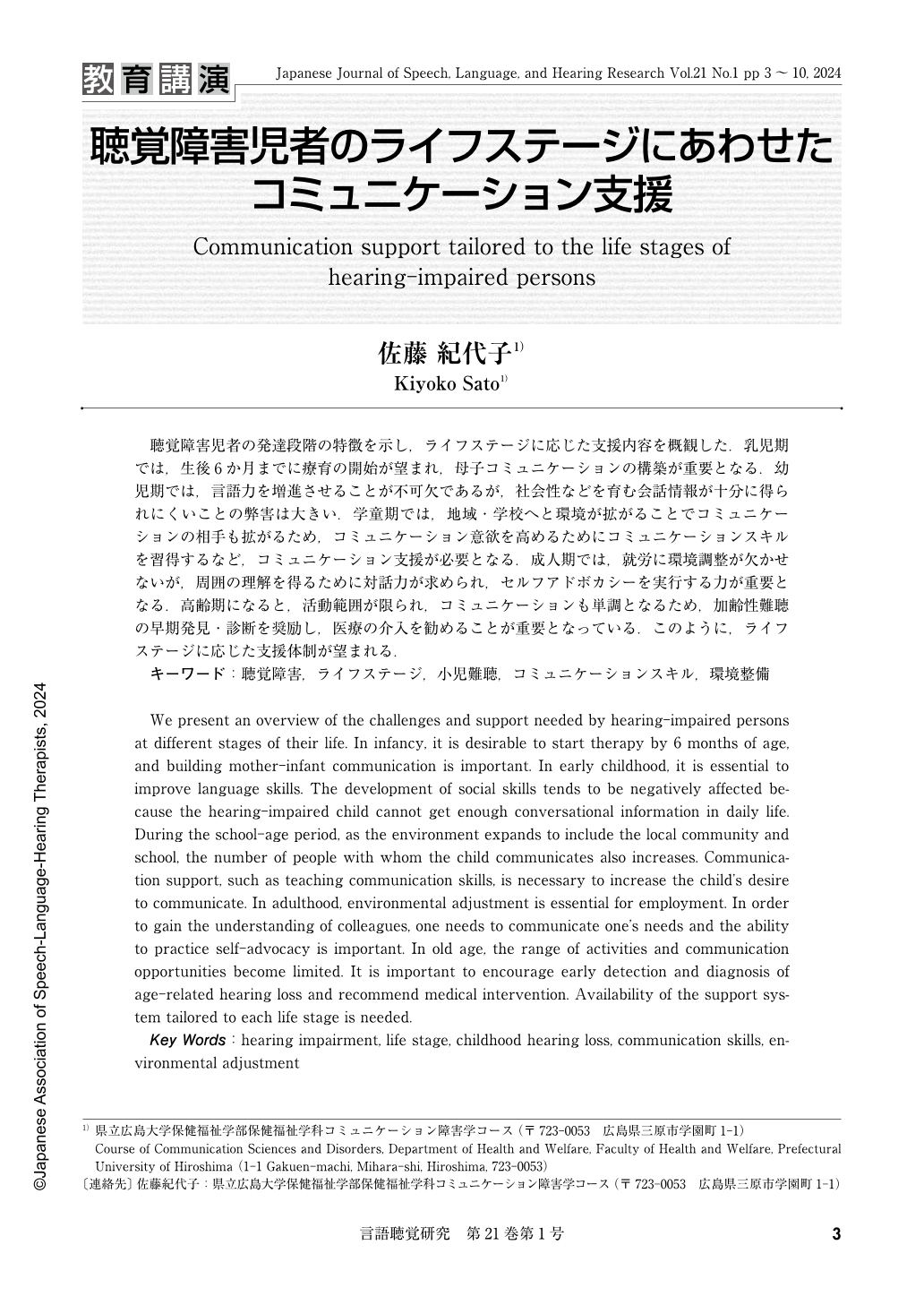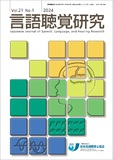Japanese
English
- 有料閲覧
- Abstract 文献概要
- 1ページ目 Look Inside
- 参考文献 Reference
聴覚障害児者の発達段階の特徴を示し,ライフステージに応じた支援内容を概観した.乳児期では,生後6か月までに療育の開始が望まれ,母子コミュニケーションの構築が重要となる.幼児期では,言語力を増進させることが不可欠であるが,社会性などを育む会話情報が十分に得られにくいことの弊害は大きい.学童期では,地域・学校へと環境が拡がることでコミュニケーションの相手も拡がるため,コミュニケーション意欲を高めるためにコミュニケーションスキルを習得するなど,コミュニケーション支援が必要となる.成人期では,就労に環境調整が欠かせないが,周囲の理解を得るために対話力が求められ,セルフアドボカシーを実行する力が重要となる.高齢期になると,活動範囲が限られ,コミュニケーションも単調となるため,加齢性難聴の早期発見・診断を奨励し,医療の介入を勧めることが重要となっている.このように,ライフステージに応じた支援体制が望まれる.
We present an overview of the challenges and support needed by hearing-impaired persons at different stages of their life. In infancy, it is desirable to start therapy by 6 months of age, and building mother-infant communication is important. In early childhood, it is essential to improve language skills. The development of social skills tends to be negatively affected because the hearing-impaired child cannot get enough conversational information in daily life. During the school-age period, as the environment expands to include the local community and school, the number of people with whom the child communicates also increases. Communication support, such as teaching communication skills, is necessary to increase the child's desire to communicate. In adulthood, environmental adjustment is essential for employment. In order to gain the understanding of colleagues, one needs to communicate one's needs and the ability to practice self-advocacy is important. In old age, the range of activities and communication opportunities become limited. It is important to encourage early detection and diagnosis of age-related hearing loss and recommend medical intervention. Availability of the support system tailored to each life stage is needed.

Copyright © 2024, Japanese Association of Speech-Language-Hearing Therapists. All rights reserved.


